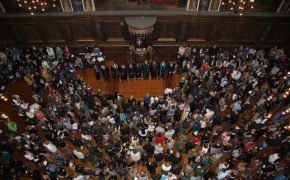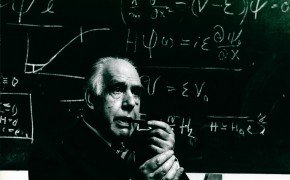Universitetsavisen
Nørregade 10
1165 København K
Tlf: 35 32 28 98 (mon-thurs)
E-mail: uni-avis@adm.ku.dk
Section
GenomeDenmark was selected in recent poll as the 2017 research-project of the year. But despite being hailed for its potential to lead to a breakthrough in the field of personalised medicine, the project lacks money to carry out the next stage of its research

Women and young researchers often write in co-authors who have not contributed significantly to their scientific articles. A new study reveals questionable conditions.

The University of Copenhagen's new strategy towards 2023 focuses on talent and collaboration.

Plans for a new, expanded Natural History Museum near the Botanical Gardens are ready to move ahead after the selection of Per Aarsleff as the building’s main contractor. If all goes according to schedule, the museum will open its doors in 2020

Work done by molecular biologists and physicists from the University of Copenhagen provides an explanation for how bacteria survive viral attacks

Historic events can be recalled and treated in a variety of ways. Upcoming conference on Memory Studies discuss how the past is recalled and represented.

If non-scientists or non-academics are to get interested in scientific research results, it can be a good idea to make a visual work of art out of it.

Anja C. Andersen has been promoted to professor with communication responsibility at the Niels Bohr Institute.

John Renner Hansen describes his unconventional trajectory to an academic career, where he needed both a Plan A and Plan B, especially in his duties managing scientists and staff as the dean of Faculty of Science.

While researchers at the Niels Bohr Institute are close to revolutionizing the world for a second time, they must abandon their historic premises on Blegdamsvej for a new building made of steel and glass and plagued by scandal. Will the move destroy a unique research milieu?
